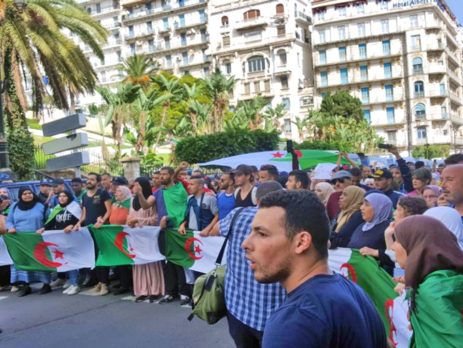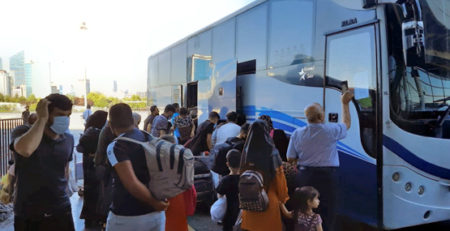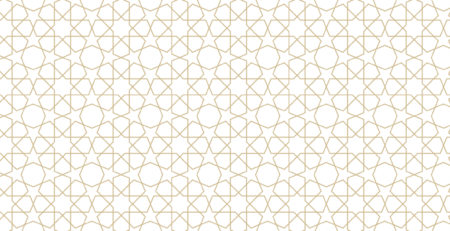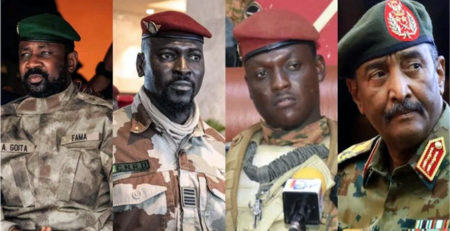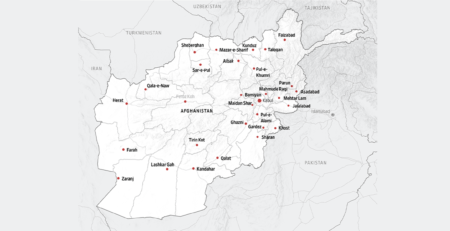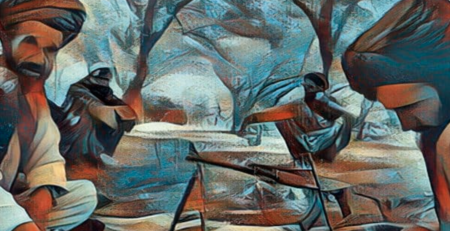After more than seven months, the harak in Algeria holds firm
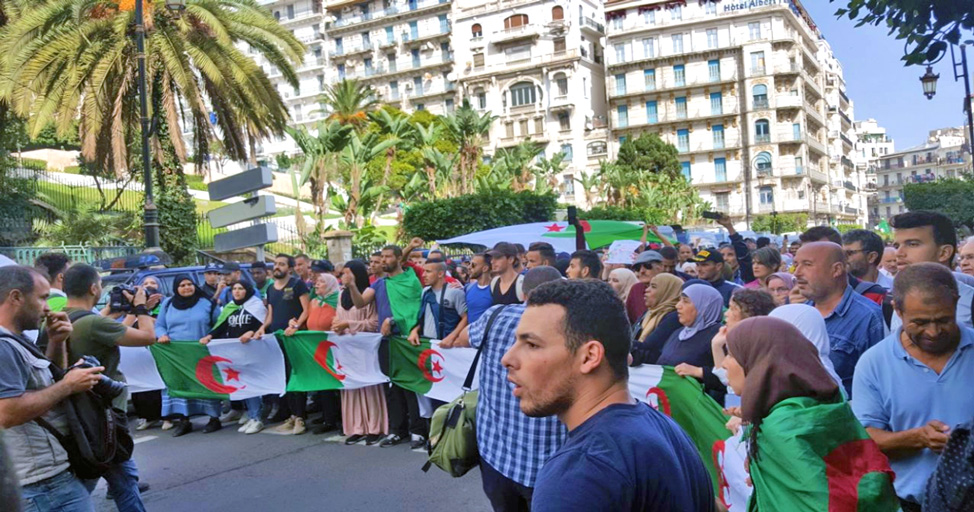
In 2008, a young African who took to the sea to flee his country told French-Senegalese actress and director Mati Diop: “When you decide to leave, you are already dead.” Many African candidates for exile in Europe would experience death once again, real this time, in the waves of the Mediterranean.
by Abbas Aroua
by Abbas Aroua
In 2008, a young African who took to the sea to flee his country told French-Senegalese actress and director Mati Diop: “When you decide to leave, you are already dead.”[1] Many African candidates for exile in Europe would experience death once again, real this time, in the waves of the Mediterranean.
Algeria was on the point of death for many years in the image of its president, clinging unworthily to power two decades after his appointment by the military. The non-violent popular uprising, launched on 22 February this year, came to revive the country and give Algerian youth hope and the taste for life. From the first weeks of the harak, one could read on the walls and banners: “For the first time, I do not want to leave you my Algeria”, “Good news! This is the last boat [to cross the Mediterranean]. It has already been reserved by the regime”. Hope returns to a jobless youth and pride in being Algerian is reborn after being stifled by decades of hogra – injustice and humiliation.
In the eighth month of the uprising, the general staff of the National People’s Army (ANP) continues to ignore the claims of Algerians and reject the idea of a genuine national dialogue. And yet, we know that there is only one way to solve a political crisis and promote lasting peace: dialogue. The alternative is the door open to violence. Avoiding dialogue, and imposing peace by military and security force, is not peacebuilding, but pacification. The Algerian military regime tried it in the 1990s with the results that we know. It had rejected the call for dialogue from the voices of the reason such as Abdelhamid Mehri, Abdelkader Hachani, Hocine Ait Ahmed and others, all of them symbolically or physically liquidated.
Genuine dialogue is inclusive and structured
Algerians know that dialogue is the antidote to violence and that their grievances and demands must one day or another pass from the street and public squares to a formal and representative framework. But they want a real dialogue, capable of extricating the country from a political crisis that has been going on for too long. But anti-change forces, military and civilian, who benefit from the status quo, are doing everything to divert the dialogue from its primary function, to make it into an instrument serving their respective interests: to acquire a pseudo legitimacy to maintain control over political and economic power for some, to regain credibility with the population and retrieve their image of political innocence for others.
Algerians are aware that a genuine dialogue can only take place in a tranquil atmosphere. That is why they constantly demand measures to restore confidence between the effective pouvoir and the people, such as the independence of justice, the freedom of the press and media, the opening of political and associative fields, stopping the harassment and prosecution of harak actors, and the release of political prisoners and prisoners of conscience.
To succeed, this dialogue must be participatory and inclusive, involving all stakeholders. It should involve representatives of the harak, representatives of the real pouvoir, including the general staff of the ANP, representatives of the credible opposition, civil society organizations, women and youth, religious and community leaders, intellectuals and the business sector, because the broader the adhesion of the population, the more we will be able to implement the agreement reached, thus avoiding potential spoilers.
Unlike recent attempts at dialogue initiated by the regime or a certain political class, true dialogue is not just one meeting or two, with a final declaration, prepared in advance and ready for signature. It is a structured process of varying lengths, with well-defined rules and procedures. The success or failure of the national dialogue depends on many factors, related to the political context or the process itself [2]. The support from national elites and the population, the representation, number and selection of participants, the decision-making procedures, and the choice of facilitators, are crucial.
The way forward
To solve the political crisis in Algeria several approaches are possible. One way would consist in the awareness of the regime of the need to restore sovereignty to the people and its engagement in dialogue with the country’s political forces to work together for a truly democratic transition. This has always been the wish of Algerians, because it is the less costly way, but unfortunately, over time, we realize that this scenario is unlikely. This is because we are in an asymmetrical conflict, where the military think they do not need to engage in a dialogue and that they have the means to resolve the crisis on their own, in their own way. Another approach would be the intervention of a third party to persuade or coerce the regime to accept the principle of dialogue. This path is rejected by the Algerian people, who refuse any foreign interference, however friendly. The people have therefore embarked on another approach, that of peaceful resistance, to restore the balance of power and force the pouvoir to dialogue.
The massive popular resistance has lasted more than seven months because it respects five fundamental principles:
1. Unity in diversity: The harak has broken down all boundaries: ideological, regional, generational, gender based, between the able and the disabled, between the inside and the outside, and so on. In peaceful diversity, the women and men of Algeria are working together to put an end to authoritarianism and corruption, aspiring to an inclusive society and the rule of law and good governance, where all citizens will enjoy freedom and dignity
2. A common vision: Initially, the protesters chanted “No to the fifth term” of Bouteflika, but after a few weeks, there was convergence on a single clear claim: the primacy of the political over the military. The main slogans today are: “madaniya machi askarya” (civilian, not military), “joumhourya machi caserna” (a republic, not a barracks).
3. Non-violence: The uprising has lasted only thanks to its non-violence. The regime, which excels in the management of violence and using it to its advantage, has been caught off guard and is struggling on a terrain that it cannot control.
4. Independence: Algerians do not want any interference in their affairs. They believe that only they are entitled to make the change they want. They have a single message to foreign governments: by supporting an authoritarian and corrupt regime in Algeria, you will transgress your own values and damage the interests of your own countries.
5. Endurance and patience: The regime has calculated several times on a weakening of the protests at the approach of Ramadhan, long holidays, etc. It was wrong. Citizens have been massively present every week, braving the rain and cold of winter, thirst and hunger during the month of Ramadhan and the heat of summer.
The “smiling revolution” has already changed the destiny of the country. Algeria post-22 February will never be the same as before. The past 33 weeks have been a real school of political awareness for the population, especially the youth. An authoritarian and corrupt regime definitely no longer has place in Algeria. To bet on its possible regeneration would be a lack of foresight and a serious error of judgment.
[1] Augustin Trapenard. The crossing of Mati Diop: Interview with Mati Diop. Boomerang. France Inter, September 30, 2019.
[2] Thania Paffenholz, Anne Zachariassen, and Cindy Helfer. What Makes Golden Breaks National Dialogues? Inclusive Peace & Transition Initiative. The Graduate Institute of International and Development Studies. Geneva, October 2017.





